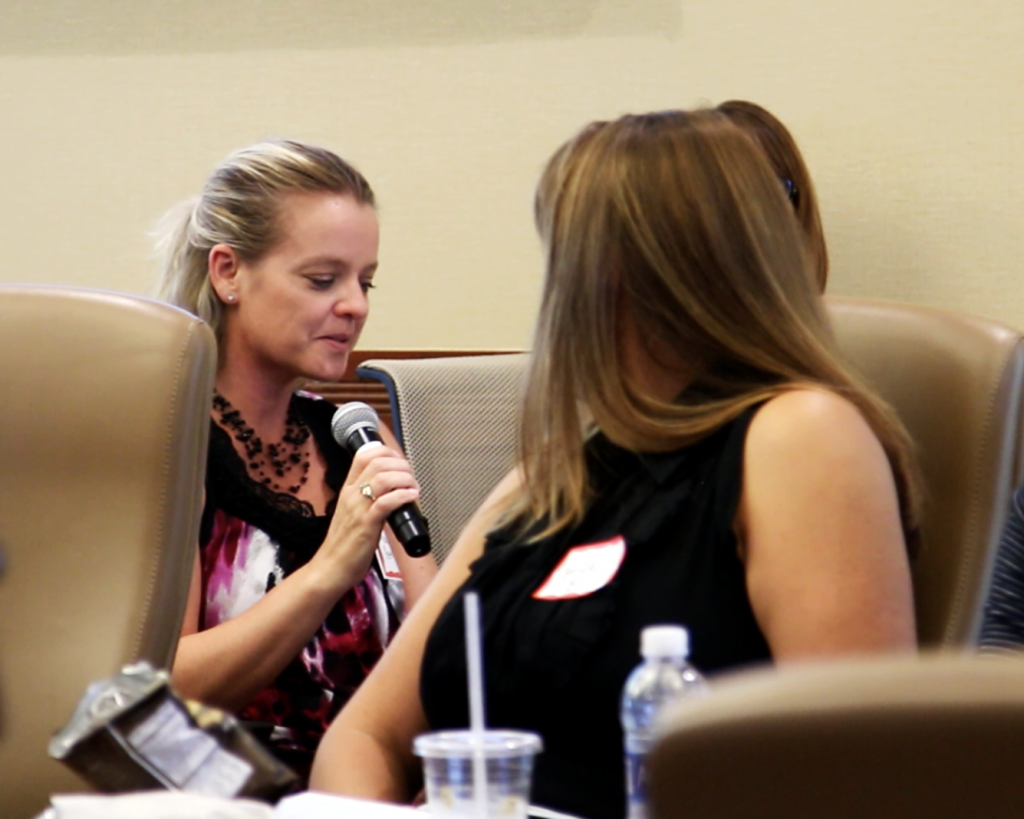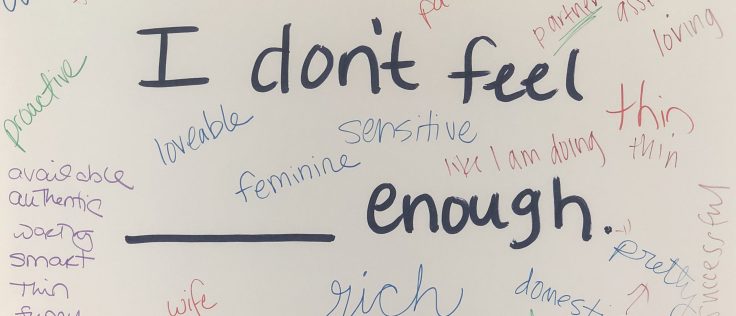How many times have you wondered what your mom might do in a puzzling situation?
Perhaps you’re struggling with whether to leave your kids home alone for the first time. Or maybe you constantly yell at your partner and wonder how your mom would suggest you stop.
But have you ever wondered what your mother would do if she could hear how you speak to yourself? What would that woman do if she could hear the loop in your mind that says you’re not good enough, patient enough, nice enough, sister enough, daughter enough, wife enough, or mom enough?
How would she respond, knowing that even though your children do well in school, that you feel like you’re failing on every front, simply because you forgot to send your son to school yesterday in his field trip t-shirt?
You’re the only one who can hear the cruel, condescending, cut-throat voice in your head that narrates your every move. But, what if you had the ability to share the soundtrack with your mother? What would happen if your mother, the woman who raised you to be respectful and kind to others, got an earful of the disparaging things you say to yourself all day, every day?
Like when you call yourself an idiot for not getting out the door on time, when you raise your voice at your daughter and tell yourself she has every right to hate you for the rest of her life because of it, when you compare yourself at your worst to other mothers at their best—and lose every time.
What would your mom say? How would she feel? I bet she’d be horrified.
I recently hosted a workshop for mothers, and during the program, I asked each woman in the room to identify the “last terrible thing you said to yourself.” It didn’t take long, maybe five seconds, for the women to figure out their answer. The statements came, scenarios ranging from a recent visit to the ladies room (“My God Allison, you have bags under your eyes. You look terrible.”), to a presentation earlier in the day (“You totally screwed that up. You’re a joke, and everyone knows it.”), to commentary on their marriage (“You’ve gained so much weight lately; it’s a miracle you’re still married.”).

Meanwhile, I couldn’t help but wonder how these women’s mothers would react to knowing their beautiful and talented daughters speak like this to themselves, all the time. I imagine they’d be crushed. I bet it would be excruciating to hear their daughters deal such blows to their self-confidence. Our mothers taught us to be kind and respectful toward others and we, for the most part, follow those rules because it’s the right and respectful thing to do.
Too bad we don’t extend the same kindness to ourselves. What’s more, we don’t talk about it. We don’t admit it. We just push through and act like we’re not the meanest mean girl we know. And that we’re the only ones filled with daily doubts and fears.
The thing is, you’re not alone; most moms feel the same way. So there’s no need to be quiet.
In fact, I believe the more we talk about our doubts, the more they diminish. Case in point: last week I had a conference call with a prospective client of The Mom Complex. The call started the same way many calls do: with someone casually asking, “Hi there. How are you?” Without missing a beat, I pleasantly responded with a truth instead of a lie.
“To be honest,” I said, “I’m writing a book right now, and some days it feels soul-crushingly time-consuming, and today is one of those days.” I didn’t hold my breath in fear of what he would say next. I was speaking my truth and trusting that my truth is beautiful. What this guy said next made me want to cry. “Oh man, I can only imagine,” he sympathized. “If it’s ever helpful to you, I have a good friend who just published her fourth book on motherhood, and I would be happy to introduce you. I’m sure she could share words of wisdom that could help.”
When I admitted I was doubting myself, he didn’t say, “You’re weird.” He didn’t say, “What the hell is wrong with you?” He said, “Let me help you.”
If you’re like me or the mothers in my workshops, you don’t often share your soundtrack of self-doubt because you’re worried what other people think of you. But we should all stop worrying about that. Today. The more you express your doubts, the more people will help you.
If your mother could hear the mean things you say to yourself, she would set you straight.
She’d remind you that you’re doing an excellent job, have a lot going on, and that you need to give yourself a break. Maybe that’s precisely the advice you need to start giving yourself. Today.






